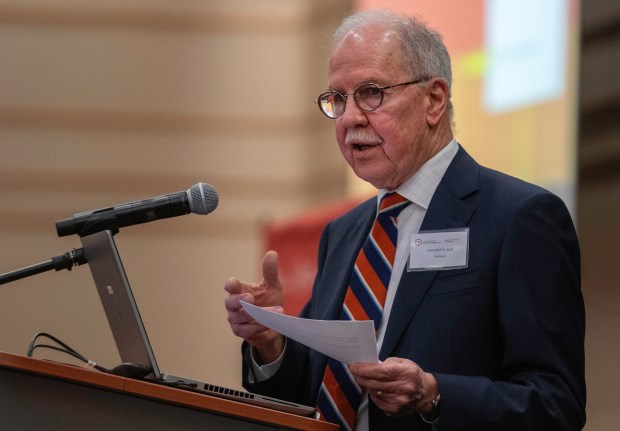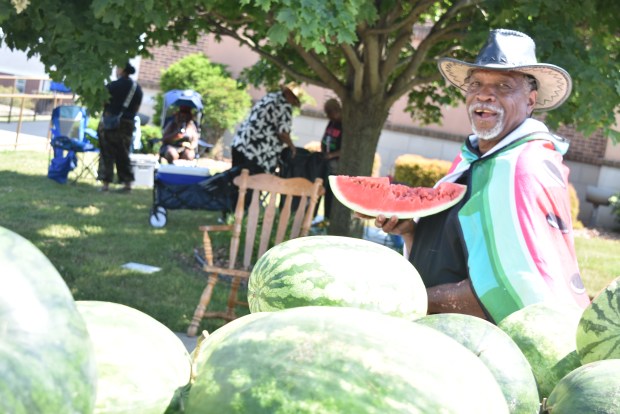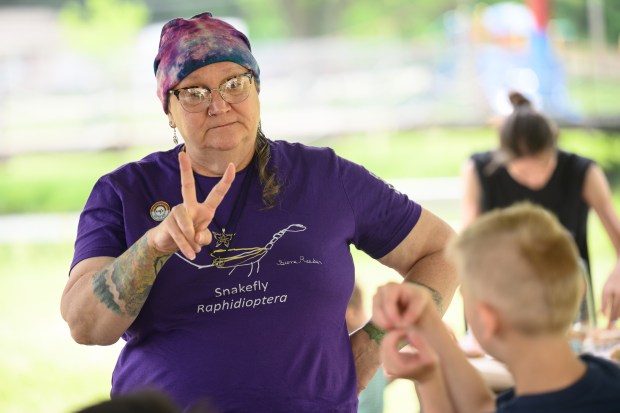While diversity, equity, and inclusion programs are facing challenges nationwide, the Urban League of Northwest Indiana and Valparaiso University forged on with their efforts to broaden the impacts of these programs through the ninth annual Diversity & Inclusion Symposium at Valparaiso University Thursday.
The all-day event focused on bringing together high school students from Lake, Porter and LaPorte counties to interact with a variety of adult leaders. It was the second year high schoolers were invited to the event. They came from Merrillville High School, Valparaiso High School, Michigan City High School, and many others.
“I hope you appreciate what a valuable learning experience this is, having this kind of dialogue between adults and students,” retired educator and speaker Michael Berta told the crowd.
He suggested next year maybe they should consider inviting kindergartners. “You would be amazed at what they tell you. They speak the truth. And that’s what we’re after today.”
The 130 students from 13 schools gathered at the Harre Student Union to tackle the theme and goal of the symposium: Defend Democracy, Demand Diversity, Defeat Poverty. At the beginning of the symposium, each table of students and adults was asked to tackle either the questions “What does demand mean?” and “What does diversity mean?” or to “Defend democracy.”
“This is required to be done, no ifs, ands, or buts about it and you stay persistent,” Toyia Moore, the executive director of the Northwest Indiana Reinvestment Alliance, shared with her table regarding her thoughts on the meaning of “demand.”
“You have to do it,” added Whiting High School Junior Lazariah Taylor.
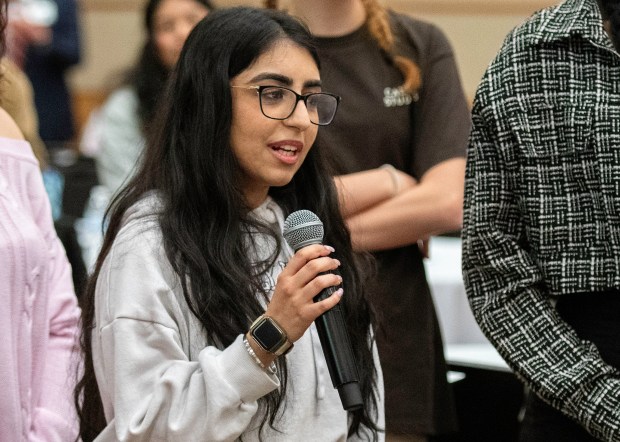
“To me, diversity is differing opinions, differing ages, because it really takes everybody to get the best answer for all of us,” said Cynthia Simmons, officer of the City of South Bend Diversity, Compliance, and Inclusion Office.
“We’re making a safe space for everyone to come together,” said Tammy Jones, a teacher at The Alternative School at New Prairie High School.
After 10 minutes of collaboration, each table sent a scribe up to the podium to summarize the group’s thoughts for the room at large. Pedro Escobedo, a senior at New Prairie High School, introduced himself and what school he came from before offering up the summary. “And I’m also a member of Table #32 as well,” he said as a good-natured nod to the identity and inclusion theme.
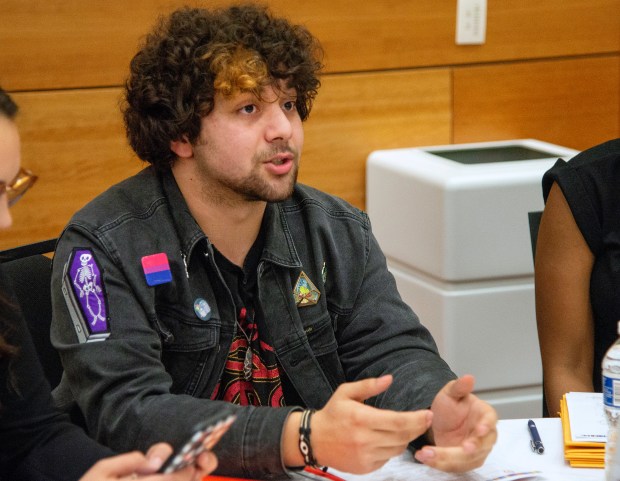
It was well-received by the crowd who chuckled before he said his group felt diversity was “to actively advocate, educate and celebrate the various lived experiences, cultures, and beliefs of our world to promote unity and tackle injustice in our society.”
The symposium offered six sessions, including: “Addressing Wealth Inequities with Innovative and Strategic Solutions,” “What does DEI look like after it has been implemented in an organization/community?” and “Systemic Discrimination in Legislation” among others.
Students participated in activities such as voting to agree, disagree, or take a neutral stance on such questions as “I feel like NWI is inclusive to all racial groups, gender identities, and socioeconomic classes.”
Ronia Bond, a senior at Westside Leadership Academy in Gary, was one of the first in line to vote no on that question.
She gave the lack of inclusive public bathrooms as one example. “We can do better as a state,” she said.
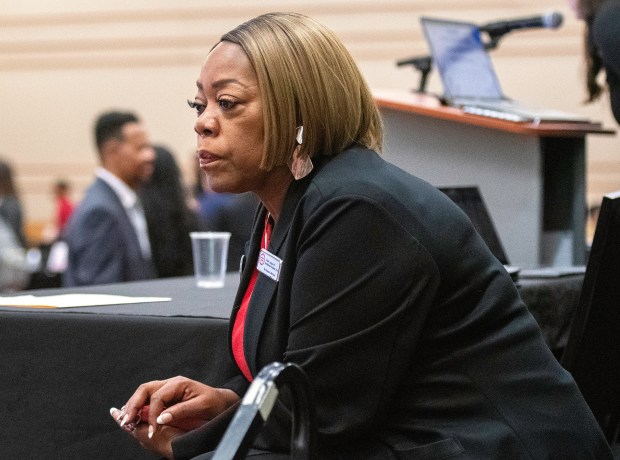
“I’m pretty sure places are working on bathrooms,” countered another young woman in the neutral voters camp.
Respectful debates such as these will continue. “It is a continuous effort to speak up and speak out about DEI,” said Vanessa McCloud, president and CEO of the Urban League. “It’s important for us to have these brave conversations.”
“What are we waiting for?” Berta asked. “Someone else to do it?”
Shelley Jones is a freelance reporter for the Post-Tribune.


